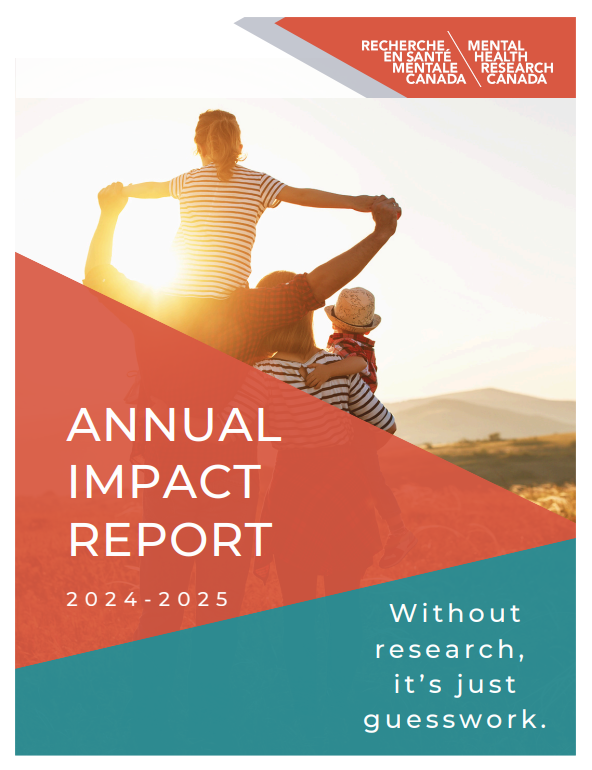Our Impact
Through MHRC’s national polling initiative, over 70 reports have been completed internally reaching thousands of Canadians. This work is further disseminated through over 50 data sharing partners across Canada and internationally who have used our resources for policy making, education, and advocacy purposes.
This research provides data driven insights into experiences of those with living with mental health challenges and helps us to understand real time changes and trends in the mental health of Canadians. Our data has been used to inform improvements in mental health care delivery through identification of gaps and shortcomings allowing Canadians to use the services more easily, leading to more accessible support for all.
National Population Polling Initiative
MHRC’s comprehensive and timely reporting on the mental health of Canadians allows for an up-to-date understanding of which groups are more vulnerable to mental health challenges, who is accessing support, who is not accessing support despite needing it, and delve into the underlying reasons.
In collaboration with numerous stakeholders across Canada, we paint a thorough and inclusive picture of the mental health landscape. Our mission strongly emphasizes mental health equity, taking into account social determinants and access to care. By aligning with experts and those with lived experiences, we forge meaningful partnerships that maximize our positive impact on advancing mental health knowledge.
From our work, we've pinpointed several groups particularly vulnerable to mental health challenges:
Young Canadians (16-34 years old)
2SLGBTQIA+ Identifying Canadians
Parents of young children
Healthcare workers and educators
[The data collection work] really, really helped with decision-making and policy development during the pandemic. Since then, the work has continued. It's been very well received. Your organization has been placed on the radar of parliamentarians, [...] and many of us who are in the health field, particularly, recognize the value of your work. - Senator Stan Kutcher
Data Hub
We are dedicated to promoting transparency in mental health research. To that end, our national polling data is not only free for researchers, but it's also accessible in a user-friendly format via our data hub. This hub provides a comprehensive analysis of mental health factors, segmented by demographics such as age, gender and region. We take pride in the wide adoption of our data hub! It has become a valuable resource for researching, educators, policymakers, clinicians and advocacy groups, enabling them to make informed decisions and develop more targeting mental health interventions. In essence, our commitment is to make mental health research data more accessible and comprehensible, ultimately contributing to a better understanding of mental health and the development of more effective, data-driven solutions.





